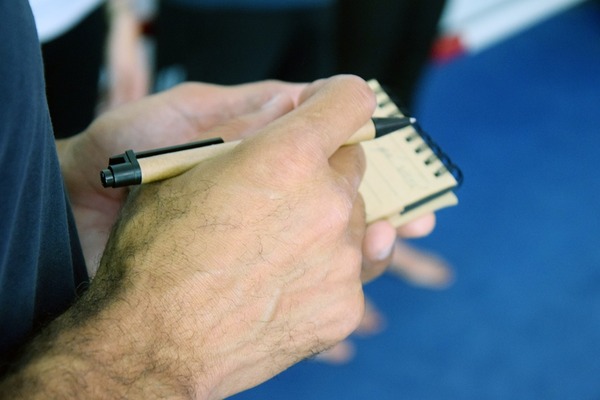
In a recent blog post, I wrote about an article, Why don’t health journalists interview nurses?, written by two staff members at the Center for Health Journalism at the University of Southern California Annenberg School for Communication and Journalism. I offered four tips for building up your organization’s use of registered nurses for media interviews.
In this follow-up post, I am exploring this question from the standpoint of journalists
The first answer the CHJ authors cited — that newsrooms and journalists have a biased view of nursing — is fair, based on my experience. Inadvertent though it may have been, my view of nursing as a reporter was too narrow (and therefore, biased). I don’t recall specifically seeking interviews with nurses on very many occasions when I was a reporter at Modern Healthcare. A lot of the operational issues that I wrote about could have been illuminated by a nursing point of view. Usually, when making requests with media relations contacts, I just asked for someone who could speak to a particular issue. If I was more specific than that, it was usually because I wanted to speak to a physician or someone in finance.
I think — again inadvertently — that I did interview many registered nurses. I just had no idea most of the time, unless I was interviewing a chief nursing officer. One reason is that C-Suite leaders and others in management or consulting who are interviewed for the business-type stories that I focused on did not always emphasize their nursing backgrounds. While I was highly attuned to signs that the person I was interviewing may be a physician, I should have been more aware of signs that a person may have a different type of clinical background, from nursing to pharmacy to phlebotomy, so I could have asked about their background.
For local reporters who cover healthcare, it’s an even greater challenge to be aware of what you are not hearing or getting from the local hospital systems you are covering. With such tight staffing at local newspapers, these reporters are more frequently covering multiple industries, so they aren’t building up the expertise that a more focused beat allows. Media relations professionals can be a resource on the value of including the nursing viewpoint in more stories.
One factor probably can’t be helped, however: Reporters having multiple beats means it’s less likely that the reporter at your local newspapers who covers healthcare actually wants to cover healthcare. Still, the online resources available to healthcare journalists have exploded. A savvy media relations professional who is aware of these tools can gently recommend them to a reporter who is flitting between four different beats and needs the path of least resistance to make up some of the knowledge gap.
Things have changed a lot in the seven years since I put a period at the end of my journalism career. While I haven’t seen any formal studies of this, my sense is that there are more reporters who are paying attention to this representation issue and who are more aware of the contributions nurses make not only to the day-to-day care but in determining the strategy and making the decisions that have a huge impact on healthcare.
Photo: Marisa_Sias on Pixabay
Sunrise Health Communications creates impactful stories for healthcare companies to engage and influence their stakeholders, including patients, customers, employees, physicians, journalists, partn... Read more
I am a recent, very belated convert to podcasts. I really enjoy the Pro Rata podcast from Axios and have loved the two seasons of Slate’s Slow Burn (the first season on Watergate ...read more
The headline on this MedCity News article did what a headline is supposed to do, at a minimum — it caught my attention — and then it went a step further, because it intrigued ...read more
Even subject-matter experts who recognize the value of being quoted in news articles can become hesitant to schedule an interview after a bad experience.When an article, in the SME’s ...read more
Two authors writing for the Center for Health Journalism at the University of Southern California Annenberg School for Communication and Journalism posed an important, necessary question ...read more